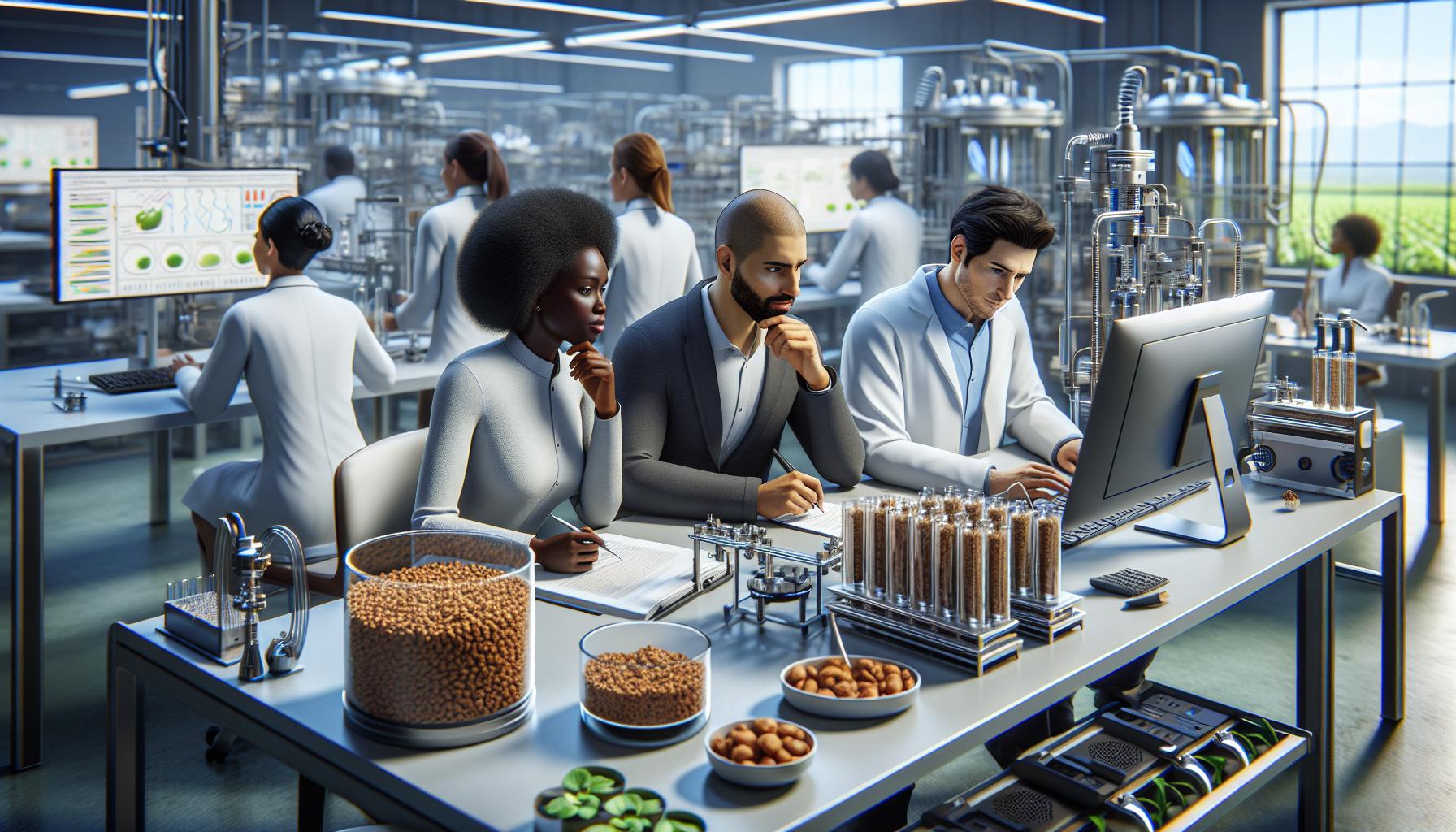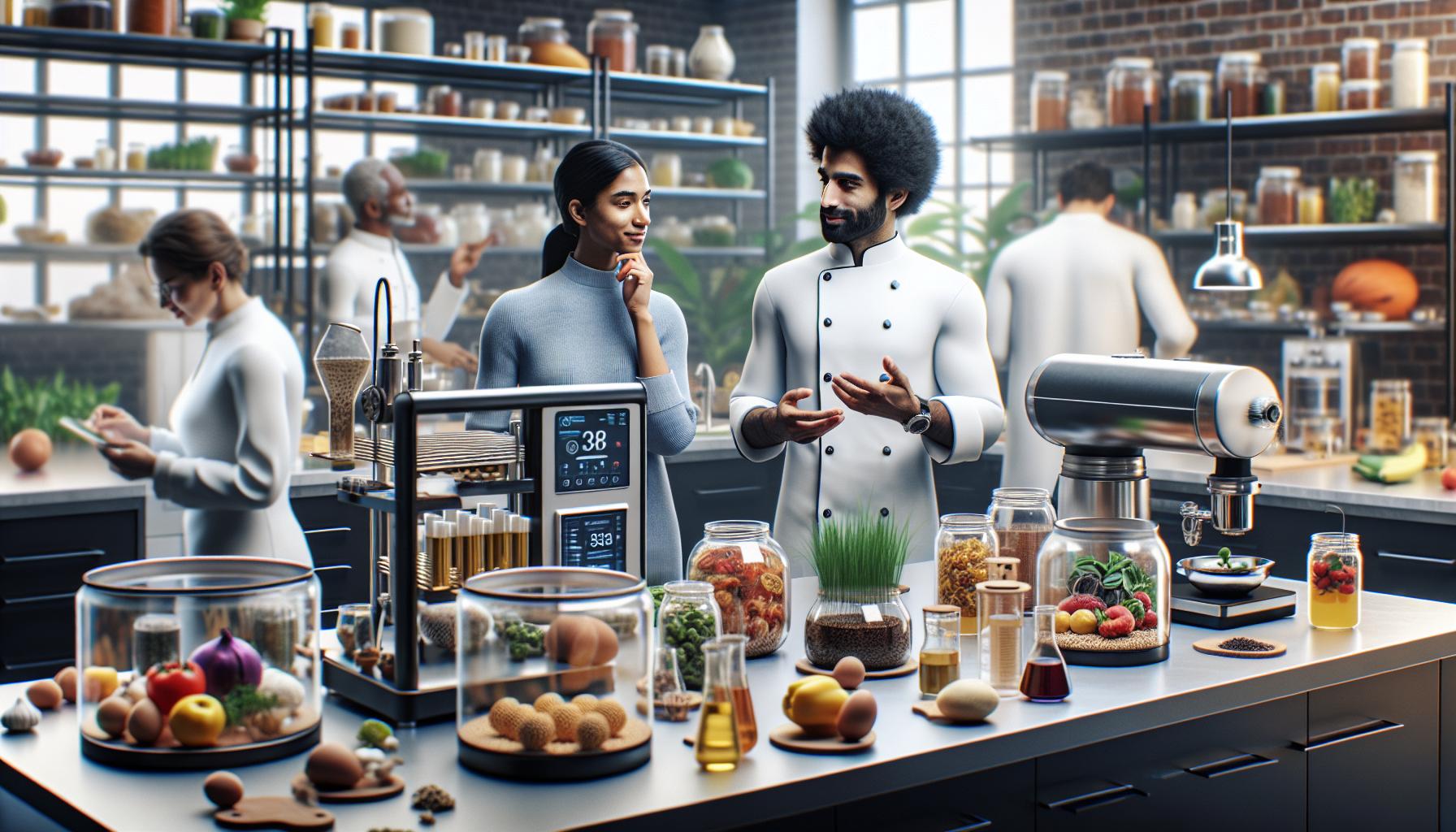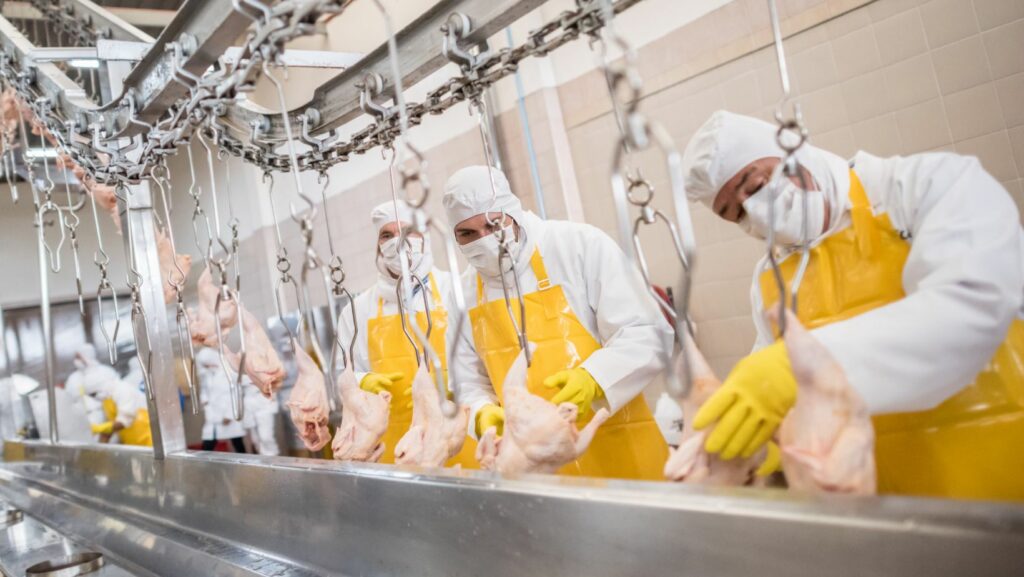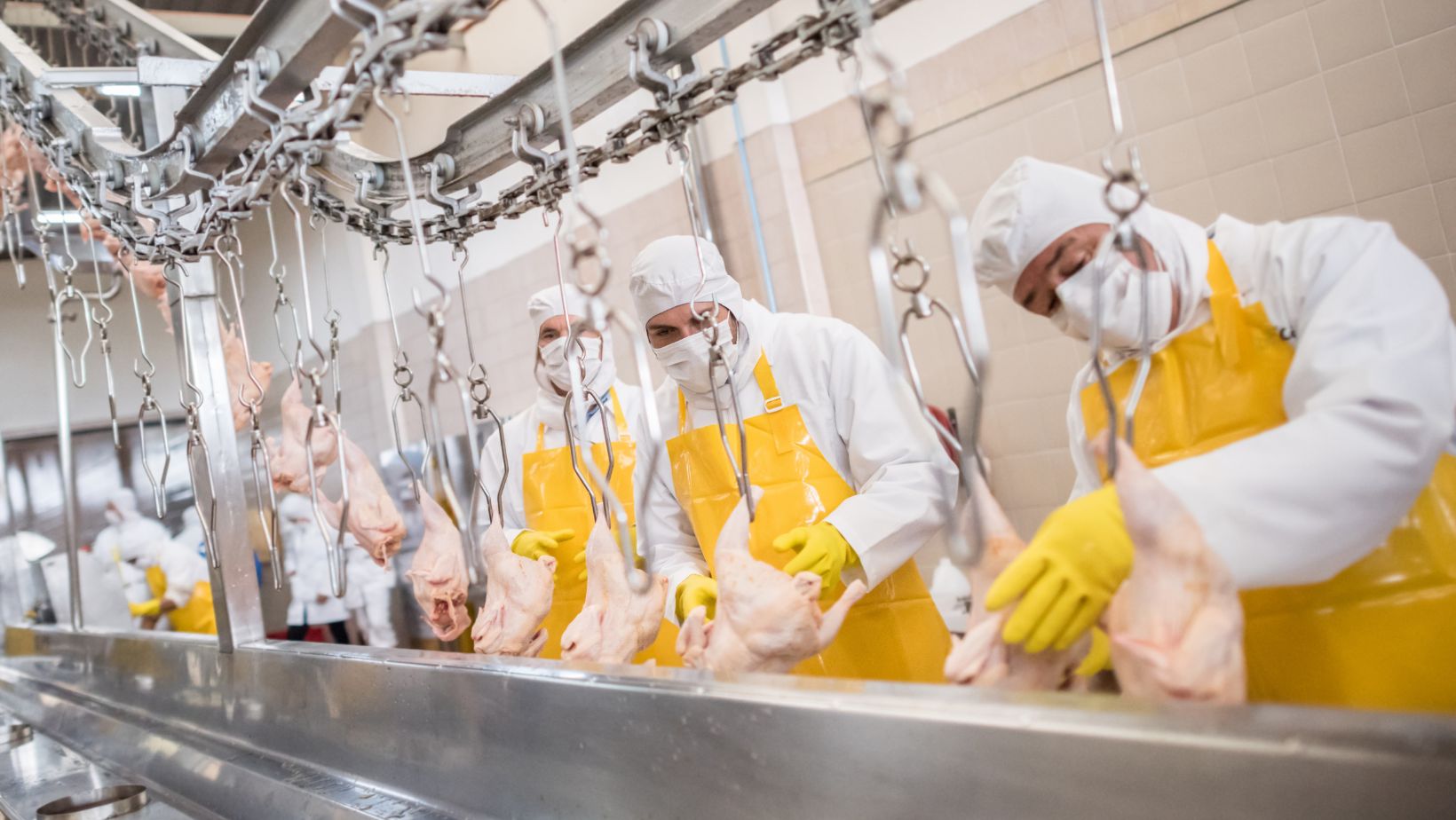Food Innovation Companies
- Transforming Food Experience: Food innovation companies are revolutionizing our food landscape through sustainability, health-conscious practices, and creative culinary solutions.
- Diverse Innovations: Key areas of focus include plant-based products, lab-grown meats, food tech startups, alternative proteins, and sustainable packaging.
- Sustainability Matters: Companies prioritize eco-friendly sourcing, waste reduction initiatives, and regenerative agriculture to minimize their environmental footprint.
- Technological Integration: Advancements in AI, blockchain, and biotechnology are driving efficiency and transparency, enhancing both food production and consumer experiences.
- Market Challenges: Food innovators face intense competition and regulatory hurdles that can delay product launches and market entry.
- Promising Future Trends: Emerging product categories, increased accessibility of lab-grown meat, and a focus on consumer education highlight the dynamic growth potential in the food innovation sector.
In a rapidly changing world, food innovation companies are at the forefront of transforming how we eat and experience food. These trailblazers harness cutting-edge technology and creative thinking to address pressing challenges like sustainability, health, and food security. By developing new products and processes, they’re not just shaping the future of food; they’re redefining culinary possibilities.
From plant-based alternatives to lab-grown meats, these companies are pushing boundaries and challenging traditional norms. Their commitment to innovation is inspiring a new generation of consumers who crave healthier, more sustainable options. As the global appetite for unique and responsible food choices grows, the impact of these innovators becomes increasingly significant, paving the way for a more sustainable and delicious future.
Overview Of Food Innovation Companies
Food innovation companies play a crucial role in reshaping the food landscape. These companies focus on creating and implementing solutions that enhance food quality, sustainability, and accessibility. By leveraging cutting-edge technology, they address significant challenges in nutrition, food waste, and resource efficiency.
Key categories of food innovation companies include:
- Plant-Based Product Developers: Companies like Beyond Meat and Impossible Foods create alternatives to meat products. They use ingredients derived from plants to mimic the taste and texture of animal proteins, responding to rising vegetarian and vegan trends.
- Lab-Grown Meat Producers: Firms such as Memphis Meats and Eat Just are pioneering cultured meat technologies. These companies cultivate real meat from animal cells in a controlled environment, aiming to reduce the environmental impact of traditional livestock farming.
- Food Tech Startups: Startups focus on innovative solutions, such as vertical farming and hydroponics. Companies like AeroFarms and Vertical Harvest use technology to grow food in urban settings, minimizing land usage and maximizing yield.
- Alternative Protein Sources: Businesses explore new protein avenues, such as insect farming and algae production. Companies like Ynsect and Algama are at the forefront of developing protein-rich foods that can contribute to global food security.
- Sustainable Packaging Solutions: Companies like Apeel Sciences and Ecovative Design are dedicated to creating eco-friendly packaging. Their products help reduce plastic waste and enhance food preservation, aligning with consumer demand for sustainable options.
As food innovation companies continue to evolve, their impact on dietary habits, environmental sustainability, and the overall food system becomes increasingly profound. They not only meet consumer needs but also drive the industry towards responsible practices that promote health and sustainability.
Key Trends In Food Innovation

Food innovation companies are increasingly focusing on sustainability and technological advancements to reshape the food landscape. These trends reflect the industry’s response to consumer demands and environmental challenges.
Sustainability Practices
Sustainability practices play a crucial role in the mission of food innovation companies. Many firms prioritize eco-friendly sourcing and renewable resources, minimizing their environmental footprint. For instance:
- Waste Reduction Initiatives: Companies implement strategies to reduce food waste, such as collaborating with grocery stores to repurpose surplus food into new products.
- Circular Economy Models: Businesses adopt circular models, reusing materials and emphasizing waste recycling for sustainable production.
- Regenerative Agriculture Practices: Some firms invest in regenerative agriculture, promoting soil health and biodiversity to enhance sustainability while producing food.
These sustainability practices not only meet consumer expectations but also ensure compliance with increasing regulatory demands for environmentally responsible operations.
Technological Advancements
Technological advancements drive the innovation process within the food sector, enhancing both the production and consumption of food. Key developments include:
- Artificial Intelligence (AI) and Data Analytics: Companies use AI to optimize supply chains, improve food safety, and tailor products to consumer preferences, fostering increased efficiency.
- Blockchain Technology: Adoption of blockchain improves transparency in food sourcing, allowing consumers to trace the origin and journey of their food.
- Biotechnology Innovations: Advanced biotechnologies facilitate the development of fortified foods, customized nutritional profiles, and enhanced flavors, appealing to health-conscious consumers.
These technological advancements enable food innovation companies to create products that align with modern dietary trends while addressing critical challenges in food security and health.
Notable Food Innovation Companies

Food innovation companies are at the forefront of transforming the food industry. They tackle challenges through technological advancements and sustainable practices while creating products that cater to evolving consumer preferences.
Case Study: Company A
Company A, a leader in plant-based product development, has revolutionized the way people perceive meat alternatives. By utilizing innovative food science techniques, it creates plant-derived protein products that mimic the taste and texture of traditional meat. This approach not only supports vegetarian and vegan lifestyles but also helps reduce environmental impact. In 2022, Company A reported a 40% increase in sales, driven by rising consumer interest in sustainable food options.
Case Study: Company B
Company B specializes in lab-grown meat production, leading the charge in cultured meat technology. This company cultivates real meat from animal cells, presenting a sustainable solution to conventional livestock farming. By employing biotechnological advancements, Company B aims to eliminate the high resource use and greenhouse gas emissions associated with traditional meat production. As of 2023, it successfully launched its first product, attracting significant media attention and consumer interest, marking a pivotal moment in the lab-grown meat sector.
Challenges Faced By Food Innovation Companies

Food innovation companies encounter several significant challenges as they navigate the complexities of the industry. These obstacles can hinder their growth and impact on the market.
Market Competition
Market competition is intense among food innovation companies, with numerous players vying for consumer attention. Established brands, particularly in the plant-based sector, have strong market positioning and loyal customer bases, making it difficult for newcomers to enter the space. Companies like Beyond Meat and Impossible Foods set high standards for product quality, taste, and marketing strategies. New entrants must differentiate their offerings through unique formulations or marketing approaches to capture consumer interest. Additionally, the rapid pace of technological advancements requires continuous innovation, as the first to market may not maintain their advantage if competitors quickly replicate successful products.
Regulatory Hurdles
Regulatory hurdles present a significant challenge for food innovation companies. Compliance with food safety regulations and labeling requirements can be complex and time-consuming. Each country has distinct regulations governing ingredient approvals, production processes, and health claims, complicating market entry strategies. For instance, lab-grown meat producers must navigate stringent regulations to ensure their products meet safety standards before they can be integrated into consumer markets. Delays in approval processes can hinder a company’s ability to launch new products, affecting investor confidence and overall growth. Companies must stay informed about regulatory changes and actively engage with appropriate authorities to facilitate compliance.
Future Outlook For Food Innovation
The future of food innovation looks promising, driven by technological advancements, changing consumer preferences, and increased focus on sustainability. Companies in this sector are expected to continue developing solutions that address pressing food security, health, and environmental challenges.
- Emergence of New Product Categories: Innovators are likely to create new categories of food products, such as hybrid proteins that combine plant and lab-grown sources. This approach may cater to broader consumer segments seeking alternative options.
- Expansion of Lab-Grown Meat: The lab-grown meat sector is predicted to grow significantly. As technological processes improve, production costs are projected to decrease, making cultured meat more accessible to mainstream consumers.
- Advancements in Food Tech: Food tech startups are anticipated to launch even more sophisticated farming technologies, such as AI-driven vertical farms that optimize yield and reduce resource consumption. Such innovations will likely support urban agriculture initiatives.
- Increased Focus on Traceability: Transparency in food sourcing is becoming non-negotiable for consumers. Companies will need to adopt blockchain technology to provide traceability, helping track food products from farm to table.
- Sustainable Packaging Innovations: The market for sustainable packaging solutions is set to expand. As consumers demand eco-friendly alternatives, companies will invest in new materials, such as biodegradable and compostable options, to reduce plastic waste.
- Regulatory Adaptations: Regulatory frameworks will likely evolve to accommodate innovations. While challenges persist in compliance with diverse regulations, successful navigation can open up global markets for innovative products.
- Consumer Education Initiatives: Companies will prioritize educating consumers about the benefits of food innovation. Clear messaging around health benefits, environmental impacts, and ethical considerations will help drive adoption of new products.
- Collaboration with Traditional Producers: Strategic collaborations between traditional food producers and innovative companies might emerge, blending established practices with new technologies to meet consumer demands.
Overall, the landscape of food innovation is set for dynamic growth, characterized by resilience and adaptability. As consumer awareness increases and technological advancements progress, food innovation companies are positioned to lead the transformation of the global food system, aligning with future dietary needs and sustainability goals.
Sustainability and Health
Food innovation companies are at the forefront of a culinary revolution that prioritizes sustainability and health. Their groundbreaking approaches are not just reshaping diets but also redefining the entire food industry. As they tackle pressing issues like food security and environmental impact, these companies inspire consumers to embrace more responsible choices.
The future looks bright as technological advancements continue to drive innovation. With a focus on transparency and sustainability, these companies will likely lead the charge in creating a more resilient food system. The ongoing collaboration between traditional producers and innovative startups promises to further enhance the way food is produced and consumed. As the landscape evolves, the influence of food innovation companies will undeniably grow, ensuring a healthier planet and population.




